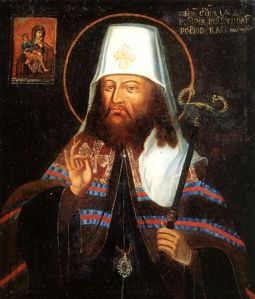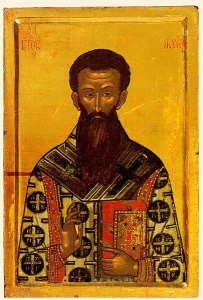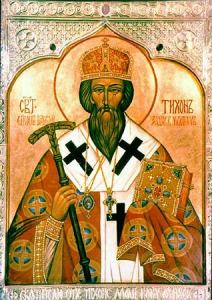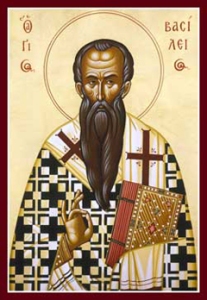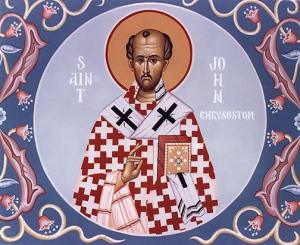 Not seven days have passed since we celebrated the holy feast of Pentecost and again we are overtaken by a chorus of martyrs, or better, serried ranks of martyrs, which are in no way lesser than the ranks of the angels seen by the Patriarch Jacob but equal to and of the same worth as them.
Not seven days have passed since we celebrated the holy feast of Pentecost and again we are overtaken by a chorus of martyrs, or better, serried ranks of martyrs, which are in no way lesser than the ranks of the angels seen by the Patriarch Jacob but equal to and of the same worth as them.
Because martyrs and angels differ only as regards the name, whereas in their works they’re united. Angels reside in the heavens, but so, too, do the martyrs. The former are eternal and immortal; the martyrs will become so.
But have the latter assumed a bodiless form? What does it matter? Because the martyrs, even though they have a body, are still immortal, or rather, before immortality, the death of Christ adorns their bodies even more greatly than immortality.
The sky, be it adorned with ever so many stars, is not so bright as the bodies of the martyrs, which are made beautiful by the blood of their wounds. So, because they died for Him, they are, in fact, superior and have been decorated before achieving immortality, since they were crowned from the moment death.
‘You have made them a little lower than the angels, with glory and honour you have crowned them’, said David, regarding the nature of the whole of the human race. But when Christ came, He completed this small amount, because He condemned death by His own death.
That is not what I am saying though. What I mean is that this defect of death became an advantage. If they had not been mortal, they would not have become martyrs. So, had there been no death, there would not have been any crown. Had there been no death, there would not be martyrdom.
Had there been no death, Saint Paul would not have been able to say ‘I affirm by the pride in you that I have in Christ Jesus our Lord: I die every day’. Had there been no death and corruption, the same Apostle would not have been able to say, ‘Now I rejoice in my sufferings for your sake, and in my flesh I am filling up what is lacking in Christ’s afflictions’.
Therefore let us not be sad that we are mortal, but rather let us be grateful, since the arena of martyrdom has been opened to us by death and, by corruption, we have been given the chance of winning the prize. From now on, we have a reason to strive.
John Chrysostom (c.347-407): Encomium on All Saints @ Pemptousia [slightly adapted].
 The holiness of the Saints—both the holiness of their souls and of their bodies—derives from their zealous grace-and-virtue-bestowing lives in the Body of the Church of Christ, of the God-Man.
The holiness of the Saints—both the holiness of their souls and of their bodies—derives from their zealous grace-and-virtue-bestowing lives in the Body of the Church of Christ, of the God-Man.